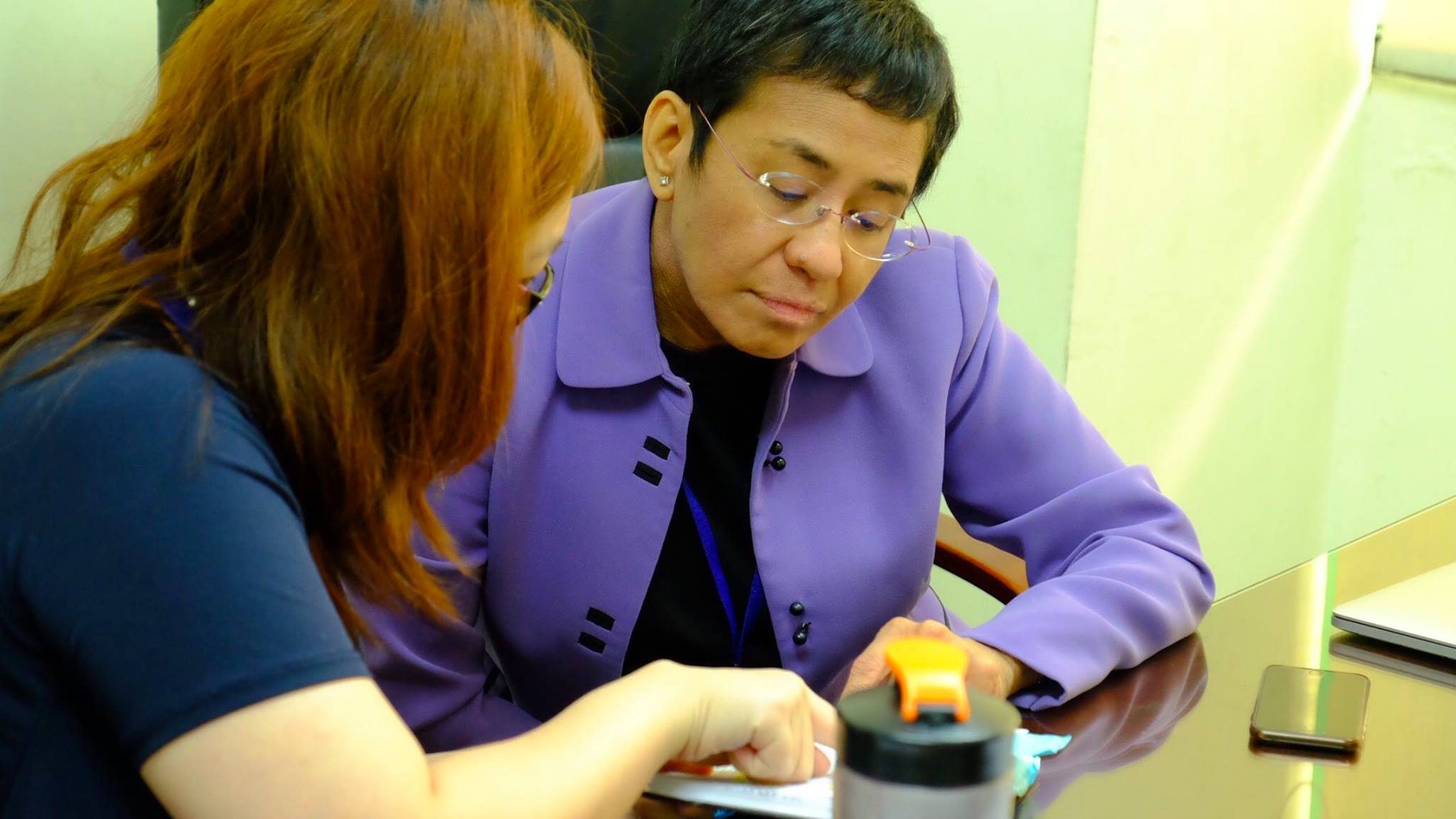SUMMARY
This is AI generated summarization, which may have errors. For context, always refer to the full article.

MANILA, Philippines – Rappler Holdings Corporation (RHC) and Rappler CEO Maria Ressa moved for an outright dismissal of 4 counts of tax cases against them before the Court of Tax Appeals (CTA).
RHC and Ressa filed on November 8 a Motion for Leave to File Demurrer of Evidence before the CTA, which is a pleading that asks the court’s permission to file the demurrer.
If the court grants the demurrer itself, RHC and Ressa will be cleared of the 4 tax charges without having to file their own evidence. If the court rejects it, trial proceeds and RHC and Ressa will have to present their defense.
The Department of Justice (DOJ) prosecution already finished their presentation of evidence on October 29.
The 4 tax cases come from the issue of the Philippine Depositary Receipts (PDRs) that RHC issued to foreign investors Omidyar Network and North Base Media.
It is DOJ’s theory that the PDRs generated taxable income that RHC did not declare.
RHC and Ressa insisted that PDRs are legitimate financial mechanisms that do not generate taxable income.
They added that the DOJ was unable to produce any evidence to prove that RHC dealt securities.
In charging RHC and Ressa, the justice department said RHC acted as a dealer in securities when it issued the PDRs. Therefore, the PDRs were the dealt securities that should have been taxed.
To prove this, the DOJ merely relied on witnesses from the Bureau of Internal Revenue (BIR), according to RHC and Ressa.
“However, these witnesses have admitted that this is the first time that the BIR has taxed a financial holding company involved in the issuance of PDRs in the same classification of a ‘dealer in securities,'” their motion said.
Main issue
The main issue of whether the PDRs violated the nationality restriction for Philippine media has been remanded to the Securities and Exchange Commission (SEC). Rappler has been operating despite a closure order by the SEC in January 2018 because the Court of Appeals (CA) said the company must be given a grace period to cure whatever alleged defects were found in the issuance of the PDR.
The 4 tax cases pending with the CTA are among the 11 total cases and investigations so far against Rappler, Ressa, and its staff since 2018.
According to the DOJ, Rappler generated taxable income worth P162,412,783.67 ($3.1 million), and acquired tax deficiencies worth P70.5 million ($1.3 million).
RHC and Ressa, who are represented by Philippine Stock Exchange’s former president Francis Lim, said that income is taxable if it is “realized,” and that “income is realized when the sale proceeds exceed the costs of assets sold and related expenses.”
“In this case, the prosecution has failed to establish that RHC received any ‘trading gain’ or any ‘income’ from any sale of the PDRs that would give rise to a taxable event. The Revenue Officers presented are also incompetent to testify that RHC received taxable income as they themselves admitted that they did not conduct an actual physical audit of RHC’s books of accounts,” said the motion.
No ‘willful’ non-payment
RHC and Rappler are charged with 3 counts of failure to supply correct information in Income Tax Return (ITR) and Value Added Tax (VAT) returns, and 1 count of tax evasion.
They argued that to be charged with tax evasion, it must be proven that there was a “willfulness” not to pay tax, or simply said, that the respondents knew they were supposed to pay tax but didn’t.
“Aside from their self-serving and uncorroborated testimony, the Prosecution failed to present any evidence to prove that RHC is aware of the tax consequence of the PDR transactions,” said the motion.
RHC and Rappler cited a CTA decision in 2013 which cleared actress Judy Ann Santos of tax evasion on absence of willfulness.
“The element of willful failure to supply correct and accurate information must be fully established as positive act or state of mind; it cannot be presumed nor attributed to mere inadvertent or negligent acts,” said the CTA in the Santos case, as cited by RHC and Ressa.
A 5th count of failure to supply correct information in VAT return is pending before the Pasig Regional Trial Court (RTC) because the DOJ filed it there separate from the CTA charges, citing amount ceilings in tax cases. – Rappler.com
Add a comment
How does this make you feel?
There are no comments yet. Add your comment to start the conversation.